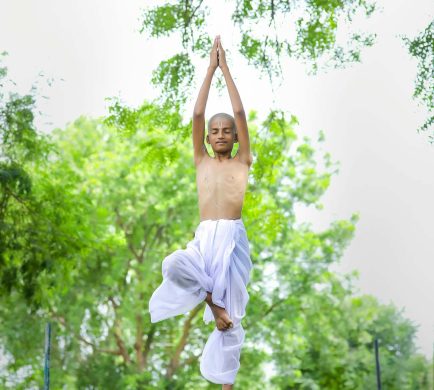For the first time in 50 years, the guards and prisoners of the infamous Stanford Prison Experiment are breaking their silence. In THE STANFORD PRISON EXPERIMENT: UNLOCKING THE TRUTH, premiering on Nat Geo on November 13, the original participants reunite to offer unfiltered insights into their harrowing experiences. Together, they revisit pivotal moments, sharing deeply personal reflections and providing a fresh perspective on one of psychology’s most controversial studies.
The Eden Magazine interview with the director, Juliette Einsner, dives into the making of THE STANFORD PRISON EXPERIMENT: UNLOCKING THE TRUTH, exploring her insights on the film and the impact of revisiting this groundbreaking study.
What inspired the decision to bring the original participants of the Stanford Prison Experiment together to share their experiences in THE STANFORD PRISON EXPERIMENT: UNLOCKING THE TRUTH?
I quickly realized upon looking into the Stanford Prison Experiment that few of the two dozen participants had ever really spoken about their experience in detail – it was always Dr. Zimbardo front and center, explaining the study and telling the story of what took place. I decided to find the subjects of the experiment because I was interested in hearing about the experience from their perspectives. Surely, they’d have something interesting to say – maybe the guards would want to apologize for or defend their behavior, maybe the prisoners would want to air grievances. Little did I know at the time, but their stories would end up being quite different from Zimbardo’s narrative that we’d come to accept over the past fifty years. But as Dave Eshelman would say, “You may think you know, but you have no idea.”

How did the participants respond to revisiting such a psychologically intense and controversial event, and what challenges did they face during the filming process?
Most of the subjects were actually quite willing to revisit the experiment, which I think had a lot to do with the fact that no one in the media had really taken the time to talk to them at length about their experiences. Most of my interviews were at least 3 hours long (sorry, guys), but that time spent with them was necessary in order to get to the crux of their stories.
There was definitely a spectrum of emotions towards revisiting the study. Some were amused by it, others angry, some felt it was completely inconsequential, and others contended that it was one of the most pivotal moments of their lives.
The Stanford Prison Experiment has been the subject of much debate and analysis over the years. How does this documentary aim to provide a fresh perspective or deeper understanding of the events that took place?
Yes! It has been the subject of much debate and controversy over the years, but I’d say that much of the criticism in the earlier days was rooted in the ethics behind locking young men in a basement for six days and not so much in the scientific methodology nor the glossing over of certain details and facts. The series reveals quite a bit of information that the public might not be aware of in terms of how the study was conducted, how the research team manipulated the subjects at times, and most importantly, why the participants did what they did over the course of those six days. I hope that the audience watches this series and, if anything, walks away with an appreciation for how different perspectives may change the nature of a narrative.

Were there any surprising revelations or new insights the participants shared that changed your understanding of the experiment and its impact on them?
There were many surprising revelations that changed my understanding of the experiment! I don’t want to give too much away, but there are a few characters in particular – Guard “John Wayne” aka Dave Eshelman, Prisoner 8612 aka Doug Korpi, and Guard John Mark – whose stories really put to question Zimbardo’s narrative. Their experiences definitely had me questioning some of the experiment’s conclusions, or at least Zimbardo’s version of “truth.”
What do you hope viewers will take away from watching this documentary, especially in terms of how we understand human behavior and the ethics of psychological experiments?
A good storyteller wields a great amount of power, no matter how much he or she lies or leaves out, and it is important to allow all characters involved in a given story, event, or narrative to speak up.
As a filmmaker, what drew you personally to this project, and how did your perspective on the experiment evolve throughout the filmmaking process?
I am drawn to stories about the human condition, stories that put to question widely accepted beliefs or truths, or reveal layers and complexities of certain convictions, and shatter ideas that are seemingly black and white. I love the grey area, and this project was thrilling in that I had the participation of a dozen individuals helping piece together the puzzle of an incredibly intriguing and complex event in our modern history. My perspective actually evolved as I got deeper into the project. At first I had no idea what I was getting into, but the subjects of the documentary helped me find the way. It was a true journey of discovery!
How did working on THE STANFORD PRISON EXPERIMENT UNLOCKING THE TRUTH impact you personally, especially as you interacted with participants who loved through such a psychologically intense experience?
I have a newfound appreciation for listening to different perspectives when dealing with a given story or narrative that involves multiple individuals. You can’t always take one person’s word as truth, even if they’re quite convincing!







